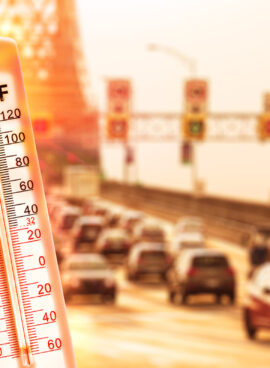The Great Vaccine and Mask Battle
The vaccine and mask wars are not over in Texas. On June 7, 2021 Governor Greg Abbott signed into law a bill that prohibits any business operating in Texas from requiring what has been referred to as a “vaccine passport.” SB 968 prevents any Texas business from asking customers to show proof of their vaccination status or post-infection recovery status in exchange for receiving services. This law comes after Abbott issued a similar executive order on April 5, 2021 that applied only to state agencies and private organizations that receive state funding. Nursing homes and long-term care
Even Superheroes Have Legal Battles
Actress Scarlett Johansson stars in the latest Marvel superhero film Black Widow that hit audiences in theaters two weeks ago. In its first week, the movie brought in $80 million in domestic box office revenue with another $78 million abroad. Sounds like good news, right? Well not according to Johansson in a recent lawsuit filed in Los Angeles County on her behalf against Disney Studios.
Johansson is alleging that the day-and-date release of her Marvel movie was in breach of her contract with Disney. Day-and-date means that a movie is released in theaters and simultaneously released for stream
Kickbacks Get Kicked Down
Recently, an attorney in South Texas voluntarily resigned from the practice of law rather than face a disciplinary hearing alleging his criminal conduct violated the laws he was sworn to protect. The former lawyer plead guilty to bribing a Texas state district court judge to make favorable rulings in court. The attorney pleaded guilty to conspiracy to commit bribery, obstruction of justice, three counts of Travel Act violations, and three counts of federal-program bribery.
Bribing or attempting to bribe an official in any capacity is a bad idea. The gravity of the situation is exacerbated if a
Sweating it Out: OSHA Guidelines for Hot Weather Work
With the western United States experiencing an unprecedented heat wave and the mild summer temperatures in Texas coming to an end, the construction industry is particularly at risk for heat-related injuries. What standards does the Occupational Safety and Health Administration (OSHA) issue for working in hot environments? The simple answer is, none. But the Occupational Safety and Health Act (OSH Act) imposes a duty on employers to protect workers from recognized serious hazards in the workplace. Heat-related hazards are one such hazard.
OSHA Classifications
Although OSHA does not have a
Lawsuits Abound: Florida Condo Collapse
On June 24, 2021, a portion of the Champlain Towers South in Sunrise, Florida collapsed, trapping and killing scores of residents. While it will take many months to determine the causes of the collapse or who was responsible for it, several of likely many more lawsuits have already been filed. Those lawsuits provide an early glimpse of liability theories and potentially responsible parties.
What happened?
In October 2018, the Condominium Board for the Champlain Towers South received a structural engineering report from Morabito Consultants. The report was prepared to fulfill the 40-year insp
The Odd Couple? Extreme Heat and Construction
Google the term “record temperature” in 2021 and you will find a swath of news about droughts and extreme heats sweeping across the country that are far from normal. 115 degrees in Portland, Oregon and 108 degrees in Seattle, Washington are hot even by Texas standards. Extreme heat poses unusual challenges that impact all phases of a construction project, from design through final completion. Some of these challenges may be managed by designing around them, others by contracting to accommodate them, and still others by training employees to deal with them. In this article, we examine how
One-Two Jab: Lawsuit over Mandatory COVID 19 Vaccination Dismissed
Even as the nation’s vaccination rate increases, vaccination requirements by employers continue to create significant legal conflicts with their employees.
Houston Methodist Hospital implemented a policy requiring all employees to be vaccinated against COVID-19. Over 150 employees objected, protested and filed suit claiming in part that the vaccine had not been fully approved by the FDA, and that they were concerned about side effects or did not want the vaccine. The Hospital responded by stating that it played a significant role in public health and safety which necessitated the vaccine p









